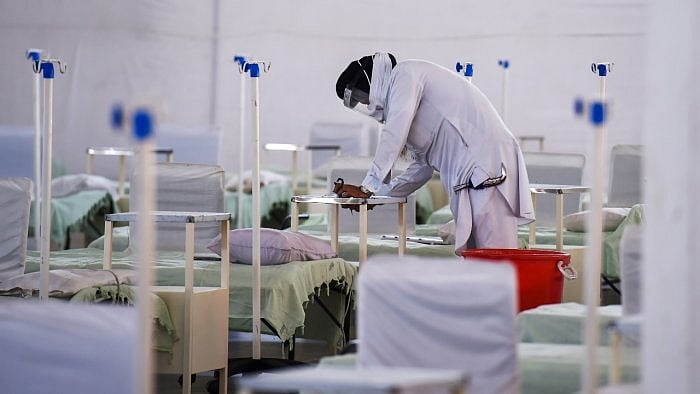
In the midst of a ravaging second wave of coronavirus in India, a report has revealed that southern states like Andhra Pradesh and Telangana ignored clear warning signs of the disease's doubling time dipping since February.
From 1,646 days in February, it drastically fell to 429 days to March 31. It further dipped to 119 days by April 10 and then to 36 days by April 30, The Times of India report stated.
In neighbouring Andhra Pradesh, the doubling time began falling from February 18. It drastically dropped from 1,636 days to 95 days in April-end.
‘Doubling time’ refers to the number of days that’s taken by the number of cases to double in an epidemic in a particular area, on the rate of cumulative increase in the number of cases. A study also mentions that the doubling time is a crude estimate of the current rate at which the virus is spreading. The longer the doubling time, the more controlled the epidemic.
K Sujatha Rao, former secretary to the Ministry of Health and Family Welfare, slammed the central and state governments for complacency. She said public health experts and scientists should have been consulted, who would have warned the governments of the severity of the second wave.
“There is some amount of negligence both in the states and the Centre. We allowed festivals and events where crowds gather. There was no urgency shown towards the value of vaccination,” Rao told the publication.
She said the government was paying a price for its oversight, adding that it should have stocked up on medical equipment and medicines like Remdesivir when there was time. She also said the healthcare system was overstretched, with exhausted doctors and nurses on Covid duty.
However, Telangana health officials denied such claims, refusing to accept that there was a lax on the government’s part in handling the crisis.
Talking to TOI, director of medical education, Dr K Ramesh Reddy, said the state has 10,000 ICU, ventilator and ordinary oxygen beds at present, with 600 non-invasive ventilator and ventilator beds in Gandhi Hospital alone, as opposed to 1,000 oxygen beds at the beginning of the first Covid wave.
He also denied claims that the state was facing a shortage of Remdesivir injections.
